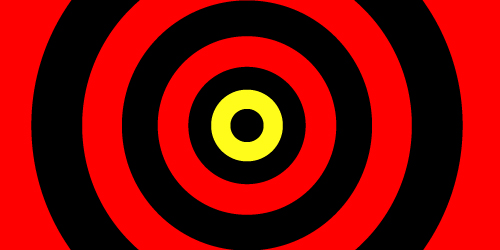Blog - Blogue

Nike – Strive for Progress, not Perfection.
jeudi, 29 Janvier 2015By Iva Apostolova

Have you ever thought about what the Nike slogan actually means? It makes a connection between progress and perfection in favor of progress.
Simple and clear, right? That’s what slogans are supposed to do, anyway – feed you a catchy phrase which does not require a lot of thinking but which, at the same time, states something everyone can relate to.
But think again. Why should striving for anything be worthy in the first place? Why is progress more important than perfection? What is progress anyway? And how do we understand perfection?
If you are already asking yourself these questions, then you are on your way to becoming a critical thinker.
Critical thinking is one of those skills essential to discipline itself as well as to life in general--capabilities that philosophy helps develop.
To think critically, among other things, means to think for yourself, that is, to take what someone else says or does, evaluate it, and make a judgment on its value for you, those closest to you, or society, in general.
To think for yourself is one of the hardest things to accomplish – it takes time, skills, and life experience. It is, just like philosophy, a work in progress.
Not in the last place because being who we are (that is, social beings), we are constantly subjected to and hence vulnerable to the power of propaganda. In all its forms, propaganda is essentially information designed to manipulate. There are various degrees and ways of manipulation: by infusing true statements with false statements to increase believability, by throwing in a clever pun which makes you feel smart, by tugging on your emotions with carefully chosen words, or by simply attacking the senses with well-crafted images usually aiming at making you buy a product or service. The rise of the Third Reich during the WWII taught us that when people are financially cornered, scared, and ignorant, they become particularly susceptible to manipulation.
Can you fully protect yourself against propaganda and manipulation? No, but you can become aware of it.
Being social means constantly relating to others on every possible level: intellectual, spiritual, emotional. It also means making mistakes in the process which, in turn, makes us all potential conjurers of manipulation.
But becoming aware of manipulation will not only develop mechanisms for self-protection; it will accomplish something else, just as important, if not even more important. Critical thinking teaches attentiveness to detail and nuances. It trains one’s mind to see shades of grey where others see only black and white.
Not every appeal to emotion is bad and not all clever words or images will skew your view of the world. If you keep your ideas honest, clear, relevant, accurate, and consistent, you have better chances of avoiding many of the traps of manipulation.

